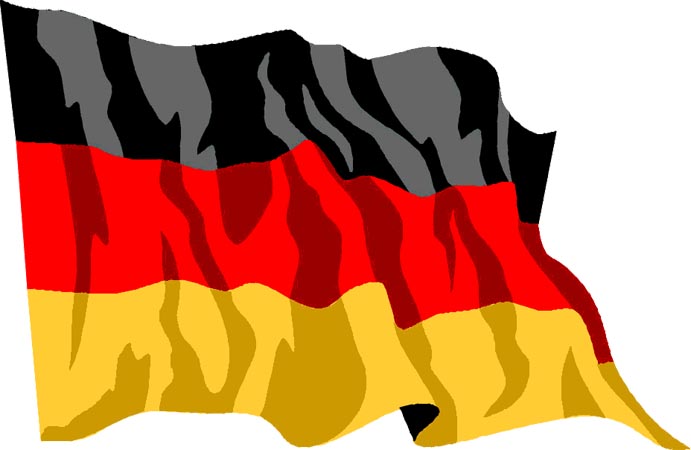From ruins to riches; Germany turns 60
 Berlin - The wartime scars were still visible when modern Germany was born 60 years ago. Berlin and other major cities were only slowly recovering from the devastation wreaked by Nazi dictator Adolf Hitler.
Berlin - The wartime scars were still visible when modern Germany was born 60 years ago. Berlin and other major cities were only slowly recovering from the devastation wreaked by Nazi dictator Adolf Hitler.
Millions of people had been turned into refugees and some 3.6 million homes destroyed in Allied bombing raids needed to be rebuilt. There was also the political legacy of the Holocaust and wartime guilt to cope with.
Barely four years after Germany capitulated, it was given the chance of a fresh start with a new constitution or "basic law" establishing the Federal Republic of Germany.
When it came into force in West Germany on May 23, 1949, the basic law was intended as a temporary constitution that would not prejudice the decisions of a future unified Germany.
Since then, Germany has risen to become one of the world's most respected and prosperous nations, a pillar of the European Union that boasted a booming economy until the global downturn started to take its toll at the end of last year.
Over the decades the country has spawned an economic miracle, survived the uncertainty of the Cold War and reunited with its eastern part, hived off into a separate, communist state in the aftermath of World War II.
The road to economic recovery came about with a new currency - the Deutschmark, introduced in the summer of 1948 as part of a sweeping monetary reform in the Western part of Germany occupied by Britain, the US and France.
It was aided by the Marshall Plan, launched by US Secretary of State George Marshall, which pumped huge sums of money into reconstruction projects and had the psychological effect of turning occupiers and occupied into partners.
The country slowly rebuilt its industry and started producing goods for domestic consumption and then later for its biggest market, Europe. But it soon found itself without enough workers to keep up with demand.
To help out, it hired so-called Gastarbeiter, or guest workers, from aboard. The first batch came from Italy in the 1950s, followed by others from Portugal, Spain and Turkey.
"It was a time when we didn't know much about one another," said Giovanni di Lorenzo, who arrived with his family from Italy as a child and is now editor-in-chief of the prestigious weekly, Die Zeit.
Di Lorenzo, who also co-hosts a television chat show, said the workers who decided to remain in the country helped make Germany "a more open society."
While West Germany continued to prosper, the East was not doing so well. An estimated 3 million East Germans had left for the West in search of a better life, prompting the communist rulers to erect the Berlin Wall in 1961.
When Chancellor Willy Brandt came to power in 1969, he launched a dialogue with the Warsaw Pact states of Eastern Europe, a move which took some of the tensions out of the Cold War.
Brandt, who was awarded the Nobel peace prize in 1971, was forced to step down in 1974 when it emerged that his chief aide was an East German spy.
His successor, Helmut Schmidt, had to deal with what up until then was the biggest challenge faced by West Germany - the rise of the left-wing urban guerrilla movement, the Red Army Faction (RAF).
The group, also known as the Baader-Meinhof gang, after its founders Ulrike Meinhof and Andreas Baader, was responsible for 34 murders, including those of leading businessmen and public figures, before it disbanded in 1998.
Schmidt was followed by Helmut Kohl, a conservative who forged a close alliance with Germany's partners in Europe, particularly France, and was a key architect of a stronger European Union.
The 1980s saw the start of an erosion process in the communist states of Eastern Europe, which eventually led to the lifting of the Iron Curtain and the fall of Berlin Wall in November 1989.
Eleven months later, the 41-year division of Germany came to an end and the country was reunited, an event presided over by Kohl, who earned the sobriquet "chancellor of German unity."
In the nearly two decades since unification, Germany has deployed troops in the Balkans and Afghanistan as part of NATO forces, but it did not participate in the US-led war against Iraq.
The country was also forced to introduce a series of tough economic reforms, which began to take effect when Angela Merkel came to power as Germany's first female chancellor in 2005.
As Germany celebrates its 60th birthday, the country faces what Merkel has called its biggest-ever challenge - coping with the global economic crisis that threatens the lifeblood of Germany, its export industry.
Whether Germany can master that challenge, as it has others in the past, depends on the skill of the government and its ability to work together with other countries in an increasingly globalized world. (dpa)